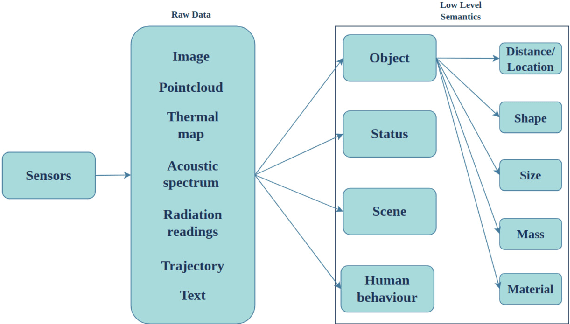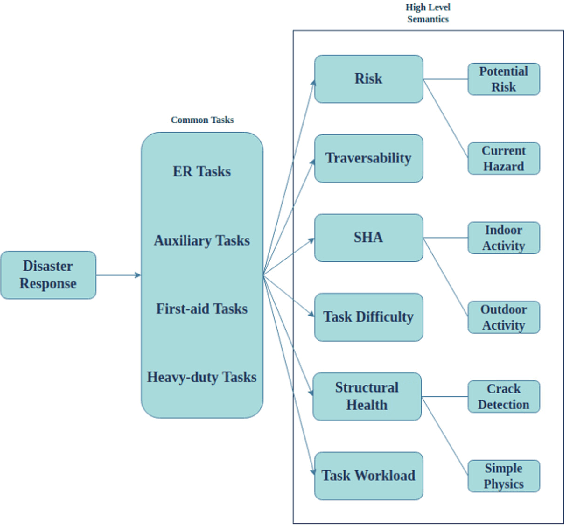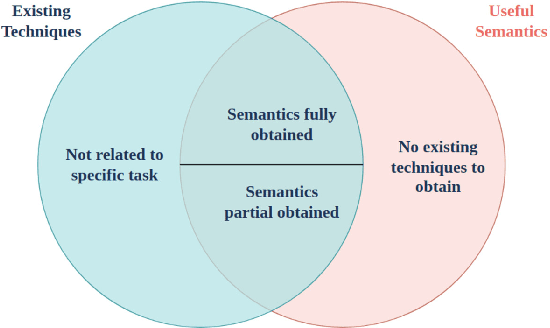A Taxonomy of Semantic Information in Robot-Assisted Disaster Response
Paper and Code
Sep 30, 2022



This paper proposes a taxonomy of semantic information in robot-assisted disaster response. Robots are increasingly being used in hazardous environment industries and emergency response teams to perform various tasks. Operational decision-making in such applications requires a complex semantic understanding of environments that are remote from the human operator. Low-level sensory data from the robot is transformed into perception and informative cognition. Currently, such cognition is predominantly performed by a human expert, who monitors remote sensor data such as robot video feeds. This engenders a need for AI-generated semantic understanding capabilities on the robot itself. Current work on semantics and AI lies towards the relatively academic end of the research spectrum, hence relatively removed from the practical realities of first responder teams. We aim for this paper to be a step towards bridging this divide. We first review common robot tasks in disaster response and the types of information such robots must collect. We then organize the types of semantic features and understanding that may be useful in disaster operations into a taxonomy of semantic information. We also briefly review the current state-of-the-art semantic understanding techniques. We highlight potential synergies, but we also identify gaps that need to be bridged to apply these ideas. We aim to stimulate the research that is needed to adapt, robustify, and implement state-of-the-art AI semantics methods in the challenging conditions of disasters and first responder scenarios.
 Add to Chrome
Add to Chrome Add to Firefox
Add to Firefox Add to Edge
Add to Edge